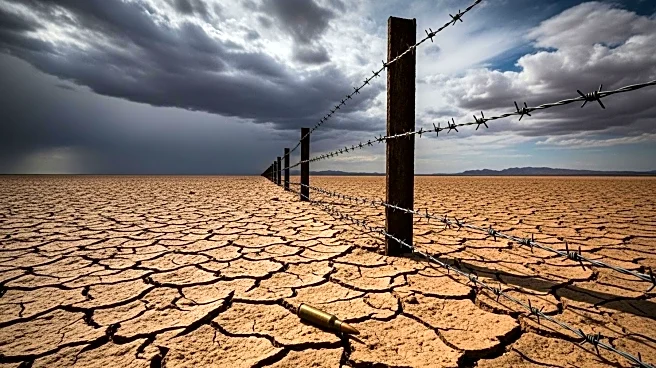What is the story about?
What's Happening?
Afghanistan has reported killing 58 Pakistani soldiers in a series of border operations, citing repeated violations of its territory by Pakistan. The Taliban government claims to have captured 25 Pakistani army posts, while Pakistan reports lower casualties, stating 23 troops were killed. The clashes have led to the closure of major trade routes, including the Torkham crossing, affecting commerce and refugee movements. The situation has intensified following accusations of Pakistani bombings in Kabul and eastern Afghanistan.
Why It's Important?
The border conflict between Afghanistan and Pakistan poses a risk of escalating into a larger regional crisis. The closure of trade routes impacts economic activities and exacerbates humanitarian challenges, particularly for Afghan refugees. The involvement of India, which has strengthened diplomatic ties with Afghanistan, adds a layer of complexity to the geopolitical dynamics. The situation could lead to increased militancy and further destabilize the region, affecting international relations and security.
What's Next?
Both countries remain on high alert, with potential for further military engagements if provocations persist. Calls for restraint and dialogue have been made by regional powers like Saudi Arabia and Qatar. The Taliban Foreign Minister, currently visiting India, has expressed a willingness for peaceful resolution but warned of possible retaliatory actions. Diplomatic efforts may be necessary to prevent further escalation and maintain regional stability.
Beyond the Headlines
The conflict underscores the ongoing challenges in Afghanistan's quest for sovereignty and security amidst external pressures. The historical dispute over the Durand Line remains a contentious issue, contributing to the tensions. The situation highlights the fragile nature of regional security and the potential for proxy conflicts involving larger powers.
















